9 “As the Father has loved me, so have I loved you. Now remain in my love. 10 If you obey my commands, you will remain in my love, just as I have obeyed my Father’s commands and remain in his love. 11 I have told you this so that my joy may be in you and that your joy may be complete. 12 My command is this: Love each other as I have loved you. 13 Greater love has no one than this, that he lay down his life for his friends. 14 You are my friends if you do what I command. 15 I no longer call you servants, because a servant does not know his master’s business. Instead, I have called you friends, for everything that I learned from my Father I have made known to you. 16 You did not choose me, but I chose you and appointed you to go and bear fruit—fruit that will last. Then the Father will give you whatever you ask in my name. 17 This is my command: Love each other.” (John 15:9-17)
It’s Memorial Day Weekend, and we think of and remember those who have paid the ultimate price in service to their country. But even before that ultimate sacrifice, think of the sacrifice, dedication, and hard work that it took for them to become fighting men and women! Basic Training was just the beginning!! How would they have performed in their duties if they had not maintained an ongoing effort to be the best they could be?
I think some of our modern concepts of what it means to be a Christian have hurt us when it comes to understanding the ongoing effort required by love. By focusing on the decision someone needs to make to follow Christ, a decision that IS necessary to become a Christian, we have raised a generation of believers who don’t understand the cost of discipleship.
Just as basic training is the initiation into a lifestyle of being a soldier, the new birth in Christ that comes at conversion is just the first step on the way of discipleship. That way of discipleship is the way of the cross… Jesus said, “any who would come after me needs to take up his or her OWN cross and follow!” Those that don’t remain in Christ fall away because they don’t remain in his love… when the troubles of life come, they think it is because they have failed or believe God is failing them! Nothing could be further from the truth… for love to remain, it must be tested, tried, and proven true. It takes WORK.

(c) creative commons
And, why should we doubt that love takes work? What does God’s Word say it cost to show his love for us? Jesus’ death on the cross! Memorial Day weekend is a great time for us to remember that it takes work to achieve love that results in joy.
In the 1996 movie “Jerry Maguire,” there is an interesting commentary on the role of “work” in a loving relationship. Jerry and Dorothy, the main characters, are on their first ‘date.’ Jerry is angry at himself for not working hard enough on his last relationship (which had just broken up). There is a long pause…
Dorothy consoles him by saying, ‘but maybe love shouldn’t be such hard work’ to which Jerry replies, “yeah, maybe so.”
That’s the tension we feel in relationships, isn’t it? We want to feel loved, but we know love takes work to nurture and grow, but then the work or labor of love becomes just work without love, and the joy we had in the relationship leaves. We feel cheated… hurt. We desire love, but we desire that love to be given freely… not out of obligation.
But, what if our sense that someone was loving us only out of obligation was more a problem of our perception than of reality? I think our history as a nation provides some guidance…
Memorial Day, originally known as “decoration day” began on the 5th of May 1868 by General John Logan, national commander of the Grand Army of the Republic, in his General Order No. 11 which said:
“The 30th of May, 1868, is designated for the purpose of strewing with flowers, or otherwise decorating the graves of comrades who died in defense of their country during the late rebellion, and whose bodies now lie in almost every city, village, and hamlet churchyard in the land. In this observance no form of ceremony is prescribed, but posts and comrades will in their own way arrange such fitting services and testimonials of respect as circumstances may permit.”
It was first observed on 30 May 1868, when flowers were placed on the graves of Union and Confederate soldiers at Arlington National Cemetery.
Do we minimize the sacrifice and love shown by our war dead by saying, “Well… they were soldiers. They had to know it might cost them their lives, right?” Certainly not! No soldier sacrifices their life because they are obligated to. They lay down their lives in defense of those they love.
Jesus said the same… did you hear him in the lesson today? Did he die for the sins of the world because it was his obligation as the Messiah? Because the Father told him to? Did the Spirit compel him? No. It was his determination to love us—his friends—to the very end. This is what love demands! Jesus tells his disciples:
“My command is this: Love each other as I have loved you. Greater love has no one than this, that he lay down his life for his friends. You are my friends if you do what I command. I no longer call you servants, because a servant does not know his master’s business. Instead, I have called you friends, for everything that I learned from my Father I have made known to you.” (verses 12-15)
The good news for those of us who realize that we need to work at our capacity to express love is that Jesus tells us how to do it. There are four things we can do to fulfill what love demands:
First: “Follow the Leader” (v. 12)
Jesus commands us to “love each other as I have loved you.” Who is his audience? His disciples. You and I are Jesus’ disciples, so we can assume He is speaking to the church. If the church is struggling, it is because we are not loving one another well. Period. It’s not the pastor’s fault, the youth group or children’s ministries shortcomings, the organ/praise team/choir, it’s not the lack of money, the size of the building, or how accessible the parking is. It’s LOVE, or the lack of it. The love of Christ shown through his people draws others in. If we can’t love better than the world, the world will not be drawn to our Savior. Let us follow Jesus’ example of sacrificial love.
Second: Sacrifice (v. 13)
Verse 13 is the cornerstone verse of this passage. “Greater love has no one than this, that he lay down his life for his friends.” This Memorial Day weekend, we think of the men and women who laid down their lives for our benefit. They sacrificed to the same degree, and out of the same motivation that our Lord did. There is no greater love. In this cynical age it is fashionable to question everything, even the motivations of those who serve our country in the armed forces. I strongly believe this is wrong… Question the cause for which we fight if you must, but do not question the honorable men and women that are doing their duty as they serve.
But this message isn’t just about how we look at soldiers and service men and women… because, every one of us is called to lay down our lives. Every time we put another’s interests before our own, we are laying ourselves and our interests down for our friends—our brothers and our sisters in Christ. Selfishness and sacrifice cannot coexist. One will win out over the other and will be our motivation. And, if sacrifice loses, so does love.
Third: Obedience (v. 14)
Obedience. Funny that this should be the next point of instruction. It is hard to be selfish and obedient at the same time. You can pull it off for a while, but will eventually lead to resentment. And honestly, some of us act as though we resent Jesus’ call to obedience. We act as though it were a burden!
Verse 14 reads, “You are my friends if you do what I command.”
Friendship and obedience seem antithetical to us. If one party or the other requires obedience in a friendship, it isn’t a friendship, right?
I think about some of the reading I’ve done over the years about the bond developed between fighting men and women in our armed services. Band of Brothers, The Wild Blue, and Flags of our Fathers are three of my favorites. Despite the rigorous chain of command and necessity to obey orders, the friendships formed between these soldiers are among the strongest I have witnessed. These men and women know that obedience and friendship are not antithetical. Let us learn from their wisdom and obey our Lord’s command which is, after all, for our good: Love God and Love one another.
Fourth: Trust (v. 15)
Jesus calls us his friends because he has made the will of the Father known to us. Jesus’ kingdom business is now our business. The mission objective of our Lord and Savior is now ours to carry out. This is tremendous trust. Trust is a sure sign of love. Where there is a lack of trust, there is a lack of love. And, likewise, love… real love… demands that we trust.
At some point, we must make that choice. Be open and vulnerable, and choose to follow Christ’s lead, sacrifice, obey, and trust. This brings us to my last point: because we have been chosen, we have a choice to make. Jesus says, “You did not choose me, but I chose you and appointed you to go and bear fruit—fruit that will last. Then the Father will give you whatever you ask in my name. This is my command: Love each other” (verse 16-17).
God chose us in Jesus Christ! Wow! But what is most remarkable is that God chose us in Christ while we were still in our sin. Romans 5:5-11 points out that “while we were still sinners, Christ died for us!” We were his enemies because of our sin, yet he laid down his life.
And how can our response to that kind of love be anything less than our all—our everything? How can we hold onto petty grievances and arguments about things that don’t matter in the course of eternity? This is why I believe with all my heart that, God’s love compels us to choose love (v. 17). That is the choice we have, each and every one of us, today. Will we choose to love?
Thank you for considering this passage with me today, its importance to our lives, and its relevance to this Memorial Day weekend. I would like to close with a short story by Max Lucado, called “Come Home,” that shows the power grace can wield when we choose to love:
Maria had a beautiful daughter named Christina who wanted to leave their poor little village to enjoy the bright lights of Rio de Janeiro. Knowing her mother would never give her permission to leave, Christina packed a few things and left home one morning before dawn, leaving just a note behind. Maria, the mother, was heartbroken.
Maria quickly packed some things to go in search of her daughter. She stopped at a drugstore on the way to the bus station and spent most of her money having pictures of herself made in the photography booth. Maria knew Christina had no way of earning money, and she also knew that her daughter was too stubborn to ever give up. So Maria searched in the worst parts of Rio de Janeiro, her heart breaking knowing that her daughter would have to do unthinkable things just to be able to survive. At each place Maria stopped-street corners, lobbies of seedy hotels, bathroom mirrors—she would write a note on the back of a picture of herself, a photo, and tape it up for everybody to see.
It didn’t take long for the money and the pictures to run out, so eventually Maria had to return to her village without Christina, heartsick that her daughter was lost in that urban jungle of Rio.
A month later, Christina descended the hotel stairs of one of those seedy hotels, her young face tired, her bright eyes faded and dull, her countenance fallen—a broken person now full of fear and pain.
A thousand times she had longed to trade countless beds that weren’t her own for her secure pallet back home in her little village. Now her little village seemed so far away in so many ways… lost to her forever.
As Christina reached the bottom of the stairs, she noticed something familiar. There on the lobby bulletin board was a photo of her mother. Christina’s eyes burned and her throat tightened. She removed the picture and written on the back of the photo was this message from her mother, Maria: “Christina, whatever you’ve done, wherever you’ve been, it doesn’t matter. Please come home.” And she did.
Have you come home? Whatever you’ve done, wherever you’ve been… it doesn’t matter. Jesus is calling, “Come home!”
And, if you’ve come home… will you join in the work of seeking and saving the lost? For every Christine that feels far

(c) creative commons
from God, unlovable and unredeemable… there should be a Maria; someone willing to lay down their lives, their priorities, and make the sacrifices that love demands to be Christ’s hands and feet. There is no greater love.
Finally, I would ask that you make room in your hearts and in your prayers for the children and families served by Intermountain. Many of them feel lost and without hope. They need to know they are loved. We can show them, by laying down our lives, giving of ourselves, and sacrificing on their behalf. May God bless you this Memorial Day weekend and always.
 But, as has been said, without the rain you cannot have the beauty of the rainbow. 99% of the time people say this phrase while speaking metaphorically. What is meant is that without some disappointment or difficulty in our lives we wouldn’t appreciate the beautiful moments fully. What is a pithy turn of phrase that might help us get through a minimally aggravating day can seem to mock us when real tragedy hits. If you have just lost a loved one or are experiencing a recent diagnosis of cancer, the phrase “without the rain there would be no rainbow” is as likely to push you away from life’s beauty as it is to draw you in.
But, as has been said, without the rain you cannot have the beauty of the rainbow. 99% of the time people say this phrase while speaking metaphorically. What is meant is that without some disappointment or difficulty in our lives we wouldn’t appreciate the beautiful moments fully. What is a pithy turn of phrase that might help us get through a minimally aggravating day can seem to mock us when real tragedy hits. If you have just lost a loved one or are experiencing a recent diagnosis of cancer, the phrase “without the rain there would be no rainbow” is as likely to push you away from life’s beauty as it is to draw you in.
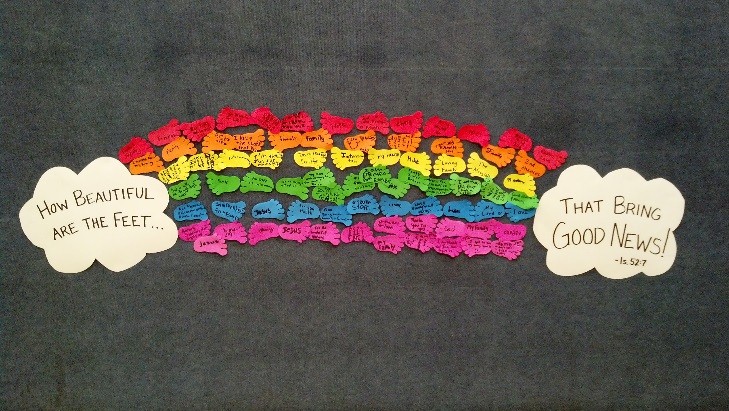



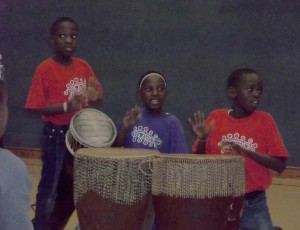
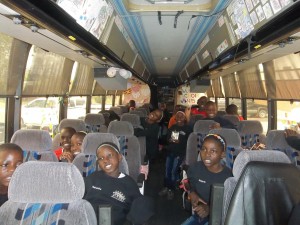
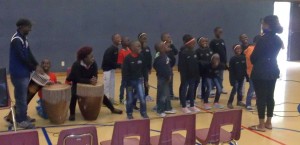
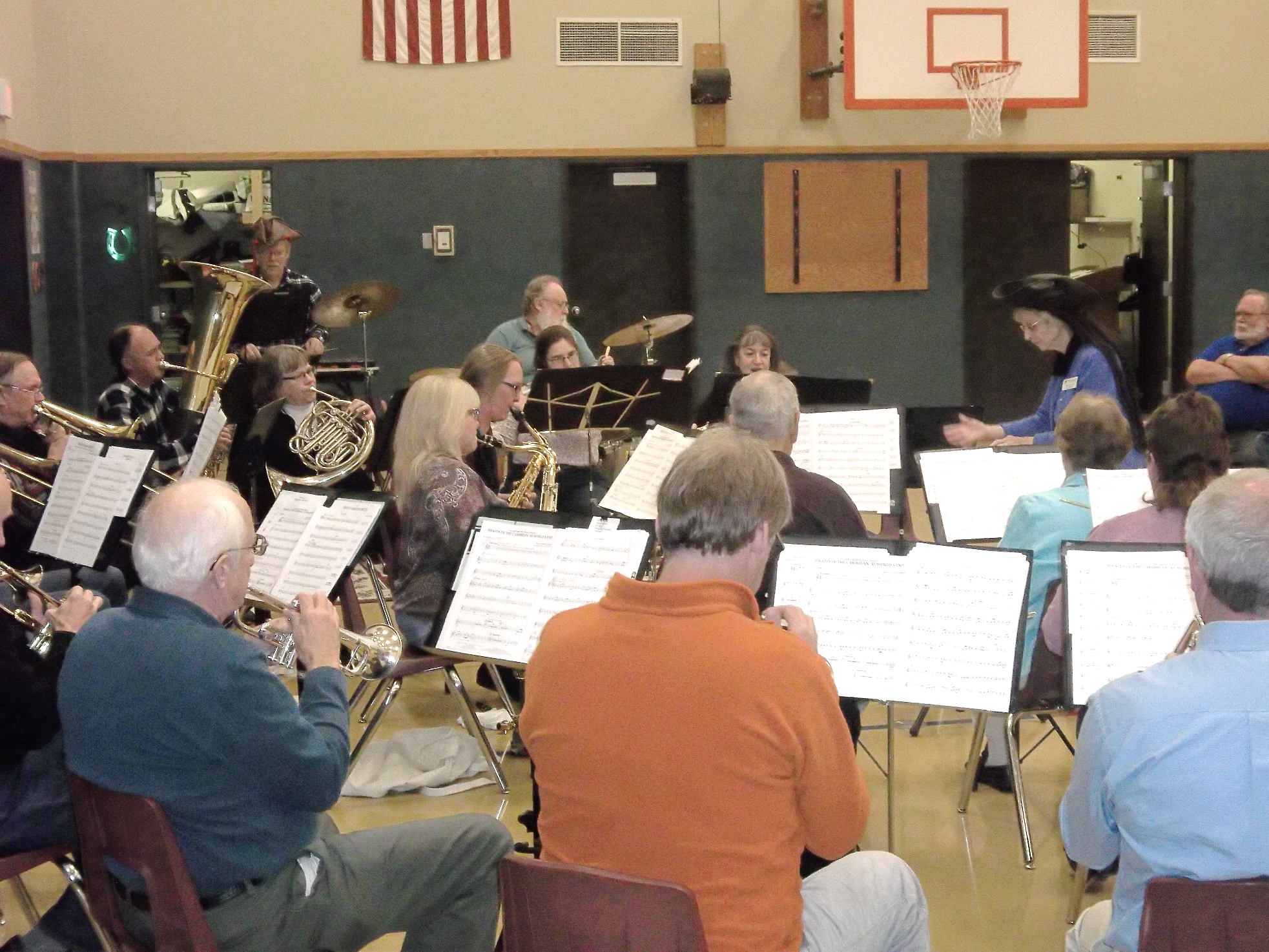




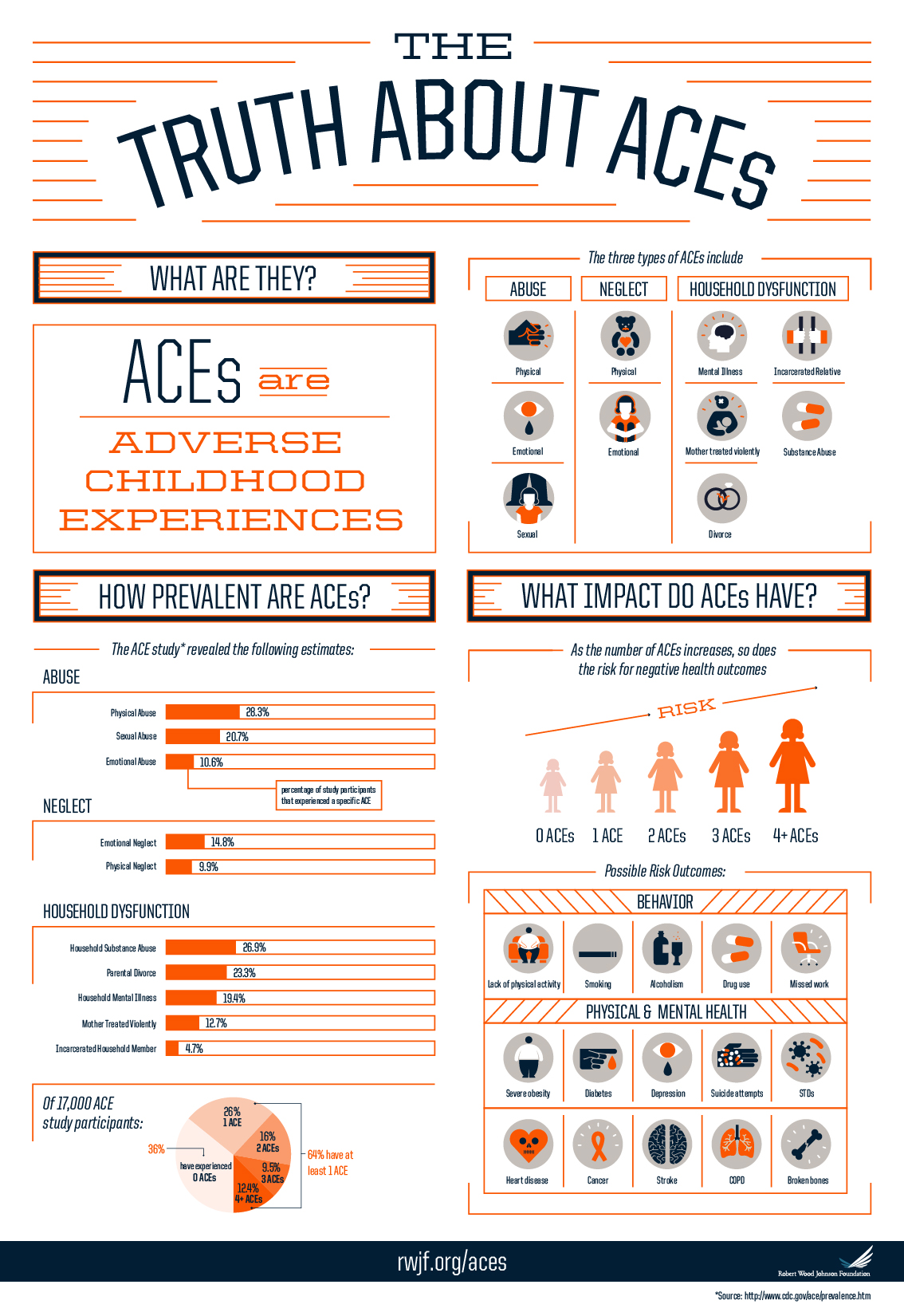
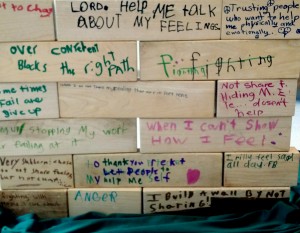
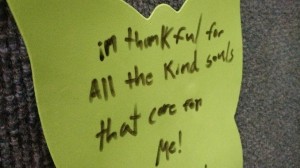
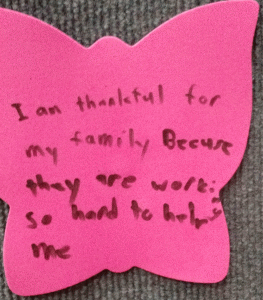
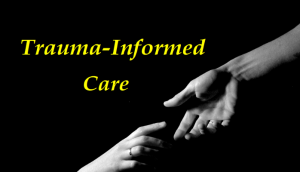
 Click here to subscribe to our RSS feed with your favorite email client and be alerted to new articles.
Click here to subscribe to our RSS feed with your favorite email client and be alerted to new articles.